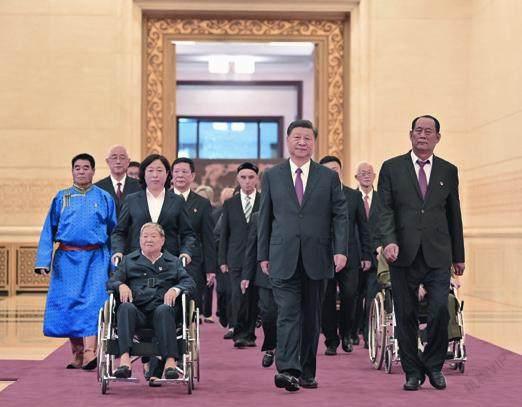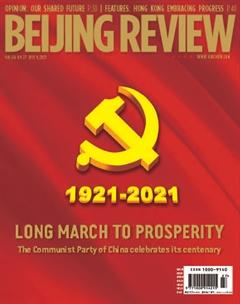UNPERTURBED AND UPBEAT
By Yan Wei



Safeguarding world peace. Contributing to global development. Preserving international order. Xi Jinping, General Secretary of the Communist Party of China (CPC) Central Committee, characterized Chinas international engagement with these catchphrases at a ceremony in Beijing on July 1 marking the 100th anniversary of the Partys founding.
“The Party cares about the future of humanity, and wishes to move forward in tandem with all progressive forces around the world,” Xi, also Chinese President and Chairman of the Central Military Commission, said.
While it does not bear aggressive traits, the Chinese nation will never allow any foreign force to“bully, oppress, or subjugate” it, Xi added.
In the context of a changing international landscape, it is relevant that the CPC sends a clear message. Indeed, it has reason to be confident and articulate. The Party has come a long way from a small group of revolutionaries to the worlds largest political party leading the greatest economic miracle on the planet and delivering prosperity to the most populous nation.
Mindful of the long, arduous journey it has traveled, the Party is ready to take the centenary as a new start.
From poverty to prosperity
A highlight of Xis speech was the announcement that China has built a moderately prosperous society in all respects.
This goal was first introduced by Chinese leader Deng Xiaoping in 1979. It has since been advanced by successive CPC leaderships.
At the 19th CPC National Congress in 2017, Xi reaffirmed the Partys commitment to it as the first centenary goal, to be achieved by the time the Party celebrated its 100th anniversary.
This is to be followed by a further centenary goal: turning China into a great modern socialist country that is prosperous, strong, democratic, culturally advanced, harmonious and beautiful by 2049, the centenary of the founding of the Peoples Republic of China (PRC).
Moderate prosperity, or xiaokang, is rooted in traditional Chinese culture. It is viewed as a threshold accomplishment necessary for the long-term project of creating datong, or a great unity of peace and harmony, Josef Gregory Mahoney, a professor of politics at East China Normal University in Shanghai, said.
In addition to a well-developed and comprehensive system of social welfare, Confucius depicted the datong society as one with a deeply socialistic ethos, where the infirm and elderly are provided for, where people take care of all children as though they were their own, where doors and gates can remain unlocked, Mahoney said.

